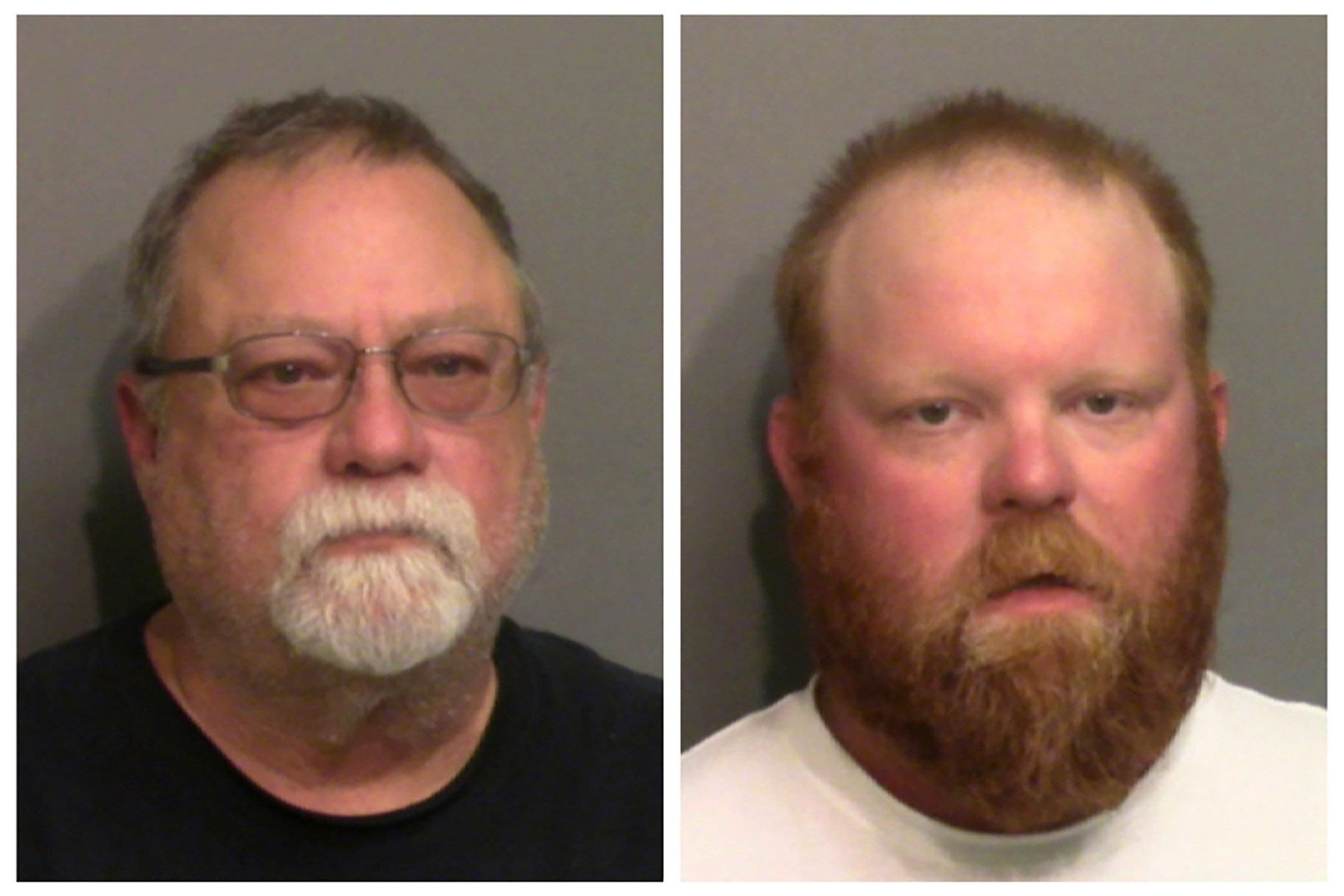Create a free profile to get unlimited access to exclusive videos, breaking news, sweepstakes, and more!
Ahmaud Aubery’s Killers File Motions To Reverse Federal Hate Crime Convictions
Father and son Gregory and Travis McMichael claim the federal government had not sufficiently proved that the unarmed jogger was killed on a public street.

Two of the three men convicted of murdering Ahmaud Arbery are seeking to have their federal hate crime convictions overturned.
Defendants Gregory McMichael and Travis McMichael were found guilty last month to hate crime charges for shooting the unarmed Black man in a racially motivated attack on Feb. 23, 2020. Now, the father-and-son duo — who were convicted alongside their neighbor William ‘“Roddie” Bryan — are appealing their federal convictions reversed on the grounds that there wasn’t enough sufficient evidence to merit the guilty verdicts, according to CNN.
A jury found the three men guilty of hate crimes just months after the state criminal trial, where all three defendants were convicted on multiple murder counts. Both the McMichaels and Bryan armed themselves and chased the 25-year-old Arbery in their trucks through the streets of a southeastern Georgia neighborhood. Bryan filmed the shocking pursuit when Travis McMichael fatally shot Arbery with a shotgun.
The three white defendants were sentenced to life in prison.
For the federal charges, a jury found there was enough to prove the three killers were motivated by hate when deciding to kill Arbery. They were convicted of violating Arbery’s civil rights because of his race, as well as for attempted kidnapping. But on Tuesday, the McMichaels filed separate appeals motions, fulfilling the 14-day window for post-trial motions following the Feb. 22 verdicts.
In the 43-page motion, Travis McMichael argued the government failed to sufficiently show that Arbery was running on a public street, according to CNN. McMichael attempted to support his stance by highlighting that federal civil rights laws prohibit people from willfully harming others based on their race, specifically in public areas.
The motion claims a developer from the Satilla Shores neighborhood — where Arbery was gunned down — offered to dedicate the streets to the county, “but the county did not expressly or implicitly accept that offer,” CNN reported.
Gregory McMichael’s motion further claimed that there was no evidence to support that the attack was racially motived, stating there was no proof he’d ever “uttered the ’n-word’ or other racial epithets against African Americans.” As previously reported, prosecutors focused on the defendants’ regular use of racial slurs in the past. Gregory McMichael, namely, allegedly said, “Those Blacks are all nothing but trouble,” as revealed in last month’s federal trial.
Gregory McMichael denied racism in Tuesday’s motion, even though “it is true that the Government admitted evidence and testimony demonstrating that defendants Travis McMichael and William Bryan may have associated African Americans with the commission of crime.”
“The Government also failed to supply the jury with any evidence that Defendant Gregory McMichael associated African Americans with criminality,” Tuesday’s motion stated, according to NBC News. “In fact, during a career in law enforcement spanning over two decades, the Government provided absolutely no evidence that Defendant Gregory McMichael displayed racist attitudes in the presence of coworkers, subordinates, and supervisors.”
Gregory McMichael had worked as an officer for the Glynn County Police Department from 1982 until the time of Arbery’s shooting, according to ABC News. He was suspended one year earlier and had his firearm taken away for failing to attend mandatory training.
Earlier this month, the federal trial’s jury foreman Marcus Ransom, who is Black, said the killers had “so much hatred.”
“Wrong is wrong, and right is right,” Ransom told the New York Times. “No matter what it is, you’ve got to have consequences. No one is above laws.”
A sentencing hearing for the federal hate crime convictions has yet to be scheduled. Meanwhile, the prosecution has yet to file a response to the McMichaels’ motions for acquittal.


























